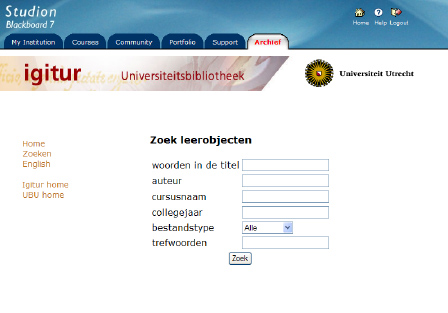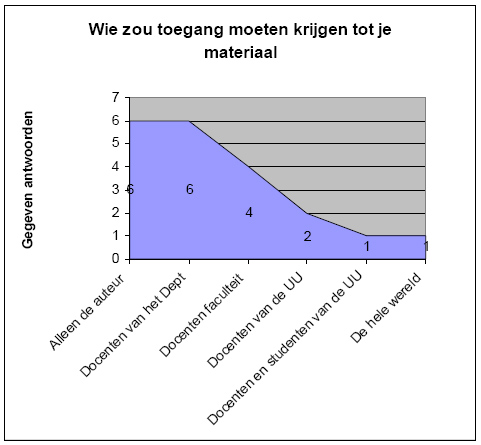
Last year I set up a pilot study with the University Library here at Utrecht University. Courses in Blackboard are normally only accessible to the teacher of the course and the students. After a few years they get cleared up. Any archives are not accessible to anybody other than the system admin. This means teachers cannot see each other's materials and learn from each other.
In a previous project (the KIP project) we discoverd teachers were not interested in adding metadata to improve the 'findability' of archived materials. So this time we decided on a different approach:
- We created archives of a number of courses using the Blackboard interface (this can be done in batch)
- These archives are ZIP files consisting of XML files describing the course, files, links and XML files descrbing these files and links.
- The library wrote a script which analysed these XML files, stored certain files and retrieved the associated metadata from the XML.
- The files and links were saved in DSpace in a separate repository.
- A search interface was written so that teachers could search in the repository.
Once this was built I performed a test with six teachers at Social Sciences with various attitudes to computers and the sharing of knowledge. The results can be found in the following pdf document (in Dutch I am afraid).

A number of interesting findings arose. In general teachers were quite pleased to have this facility. They were not out to copy other teacher's materials but would like to be able to see what other teachers are teaching in their courses. There were not all that enthousiastic about sharing their materials with the whole world. They would like to know what others are doing with their materials.
On the technical side: It is technically possible. The Blackboard IMS packages contain a lot of information, not enough to fill all Dublin core fields, but it certainly is a good start.
This facility is not yet in production (other projects took priority) but it could be taken into production without too much work. All the difficult work has been done.



No comments:
Post a Comment